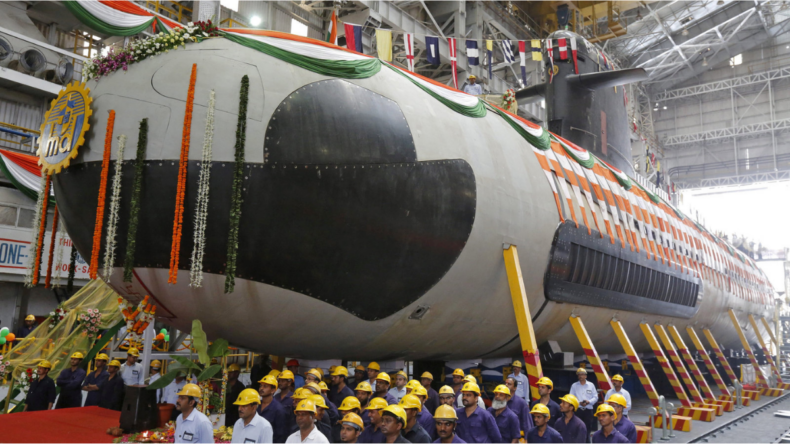Ahead of Prime Minister Narendra Modi’s scheduled visit to France, where he is supposed to meet the French President Emanuel Macron, Naval Group; a French company announced that it will not be able to participate in the P-75 India project which encompasses the construction of six conventional submarines in India for the Indian Navy.
Why did they pull out of the project?
The Naval group stated that it is unable to participate in the project on account of the conditions mentioned in the request for proposal (RFP) related to the air-independent propulsion (AIP) system.
In a statement made to the press, the Country and Managing Director of the company; Laurent Videau, clarified that “Due to certain conditions in the RFP, the two strategic partners weren’t able to forward the request to FOEMs (foreign original equipment manufacturers) due to which they have not been able to provide an official date to the project”.
Videau assured that the group’s actions will always be synonymous with India’s vision of an AatmaNirbhar Bharat. He also mentioned that the focus and efforts of the group are towards the continuation of the collaboration with the Indian industry and bolstering the efforts of the Indian government towards a self-dependent India.
He also mentioned the group’s eagerness to support the Indian Navy for other future development projects including maintenance, high-tech tools, indigenous AIP, incremental improvements, heavyweight torpedoes, and larger ships.
The group’s announcement comes just a day before Prime Minister Narendra Modi’s much-anticipated visit to Paris where he is scheduled to meet the freshly re-elected French President Emanuel Macron.

When did the project start?
The P-751 project was green flagged by the defense ministry in June 2021 and consequently, RFPs were issued to 2 shortlisted Indian companies- a private firm named Larsen and Turbo and a state-run Mazagaon Docks Limited.
The AIP, also known as Air Independent Propulsion Technology provides conventional submarines with greater endurance, the ability to remain submerged for longer periods, and is less noisy than the diesel-electric propulsion system. The technology enables a conventional submarine to remain submerged in water for extended periods at faster speeds.
As per the Defence Ministry, Larsen and Turbo and Mazagaon will have to affiliate with one of the 5 shortlisted foreign companies namely ThyssenKrupp Marine Systems (Germany), Naval Group (France), Navantia(Spain), Daewoo (South Korea), and Rosoboronexport (Russia) and then respond to the RFP.
This is the group’s second project to build submarines in India. Naval Group has already accomplished the construction of six Kalvari class conventional submarines in partnership with Mazagaon Dock Shipbuilding Limited under the P-75 project.
The Defence Ministry has also promised to award the Rs43, 000 crore deal after a proper review of the reports submitted by the two Indian companies.
Where did the project get stuck?
Videau from the naval group stated that the current RPF requires the fuel cell AIP (air-independent propulsion) to be sea-proven while the French Navy does not use any such propulsion system.
India is the biggest importer of arms and defense equipment globally. The government is working towards reducing the country’s dependency on imported military platforms and has been encouraging domestic manufacturing of arms to decrease imports.
The group’s withdrawal from the awaited project has raised certain concerns over the P-75I project. Several OEMs have expressed their concerns about not being comfortable sharing their expertise and niche technology with their Indian counterparts.
Read Also: No country will be victorious in Russia- Ukraine war: PM Modi
Published By: Aman Gupta
Edited By: Vanshika Sahu












